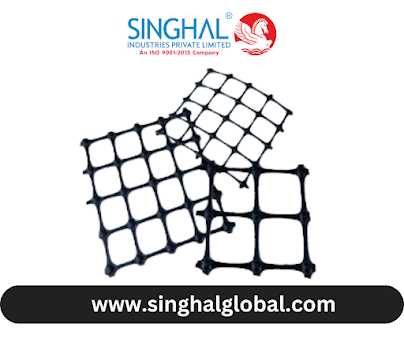Understanding FIBC Bulk Bags: Uses, Benefits, and FAQs
Flexible Intermediate Bulk Container Types of FIBC Bags, commonly known as bulk bags or big bags, are versatile packaging solutions used across various industries for transporting and storing bulk quantities of materials. These bags are designed to handle large capacities of dry, flowable materials efficiently. Here’s everything you need to know about FIBC bulk bags, their applications, benefits, and frequently asked questions.
Introduction to FIBC Bulk Bags
FIBC bulk bags are large, flexible containers made from woven polypropylene fabric. They are designed to store and transport a wide range of materials such as sand, grains, chemicals, fertilizers, and other bulk goods. These bags typically range in size from small one-ton bags to much larger capacities, depending on the material they are intended to hold.
Uses and Applications
1. Agriculture: FIBC Bags Manufacturer in India are extensively used in agriculture for storing and transporting grains, seeds, and fertilizers. Their robust construction ensures protection from environmental factors while offering easy handling and storage.
2. Construction: In the construction industry, these bags are used for transporting aggregates like sand, gravel, and cement. Their durability and ability to withstand heavy loads make them ideal for construction sites.
3. Chemical Industry: Chemical manufacturers use FIBC bags to transport powders, granules, and other raw materials safely. These bags are often equipped with liners to prevent contamination and ensure product integrity.
4. Food Industry: FIBC bags with food-grade liners are used for transporting and storing food ingredients such as sugar, flour, and rice. They comply with strict food safety regulations to ensure product quality.
5. Waste Management: Large FIBC bags, known as bulk bags or super sacks, are used in waste management for collecting and transporting industrial waste and recyclable materials.
Benefits of FIBC Bulk Bags
1. Cost-Effective: 1 Ton Bags Manufacturer offer a cost-effective solution for bulk material handling compared to traditional packaging methods.
2. Space Efficiency: They save storage space due to their stackable design when empty and collapsible nature after use.
3. Versatility: FIBC bags are versatile and can be customized with various features like liners, baffles, and discharge spouts to suit specific material handling requirements.
4. Strength and Durability: Designed to handle heavy loads, FIBC bags are made from durable woven polypropylene fabric that withstands rough handling and environmental conditions.
5. Safety: Many FIBC bags are equipped with safety features such as anti-static properties and UV protection, making them suitable for hazardous materials and outdoor storage.
Conclusion
FIBC bulk bags are indispensable in industries requiring efficient, safe, and cost-effective bulk material handling solutions. Understanding their diverse applications, benefits, and how to choose the right type ensures optimal performance and safety in various industrial and commercial settings. Whether used for transporting construction materials, agricultural products, or hazardous chemicals, FIBC bags continue to be a preferred choice due to their versatility and reliability. For businesses looking to streamline their logistics and storage operations, investing in quality FIBC bulk bags can significantly enhance efficiency and reduce operational costs.
Frequently Asked Questions (FAQs)
Q1: What are the different types of FIBC bags available?
A: FIBC bags come in various types based on their design and features. Common types include standard bulk bags, conductive or anti-static bags for hazardous materials, food-grade bags with liners, and UN-certified bags for transporting dangerous goods.
Q2: How are FIBC bags loaded and unloaded?
A: FIBC bags can be filled using gravity feed systems, conveyors, or directly from a chute. They are unloaded through a discharge spout at the bottom, which can be equipped with various closures like a petal closure, iris closure, or spout closure depending on the material and application.
Q3: What are the safety considerations when using FIBC bags?
A: Safety considerations include ensuring proper lifting techniques using certified lifting loops, avoiding overloading beyond the bag’s specified capacity, and using appropriate handling equipment. For hazardous materials, anti-static or conductive bags should be used to prevent static discharge.

.png)
Comments
Post a Comment